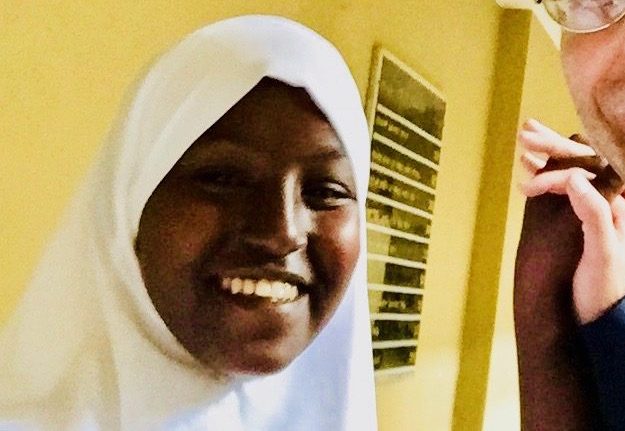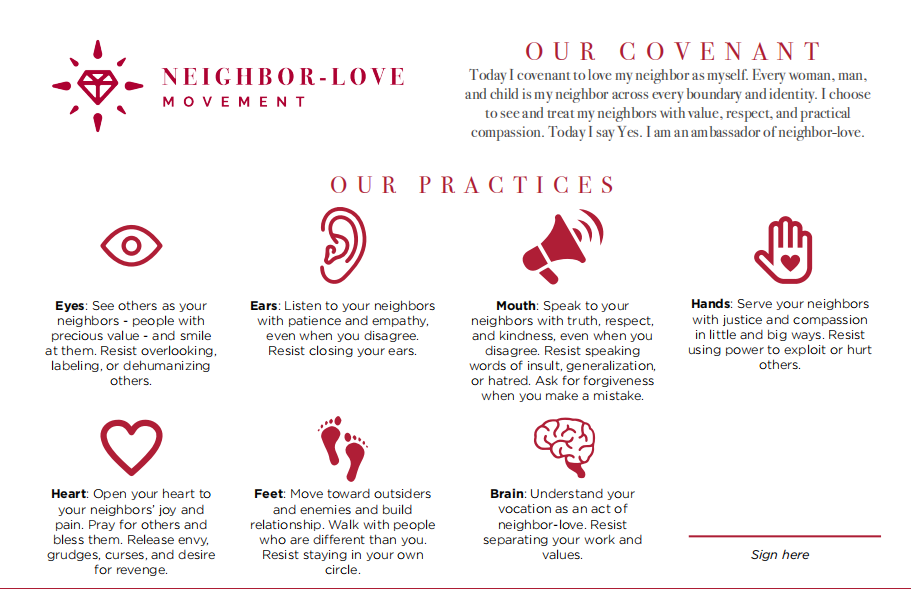In 2018, violence was rapidly escalating in Ethiopia. We witnessed a man get lynched naked and hung upside-down from a traffic light. Hundreds of people watched as he died. The photos of this public execution were horrifying and quickly circulated on social media.
In another city south of Addis Ababa called Awassa, another man was brutally beaten and left helpless in the street. A young woman poured kerosene on his body, lit him on fire, and raised her arms in triumph as he burned to death. The video that emerged was gruesome and also quickly spread online.
Around this time, I received a desperate email from a senior Christian leader in the region. He told me that Christians were burning down one another’s churches.
What was happening?
A Crisis of Othering
As historic resentments intensified across the country, people increasingly saw their neighbors as “others” – as unrelated or less than themselves. Differences in ethnic, religious, and political identity were particularly potent. As “others” were transfigured into enemies, people were no longer seen as people, and we witnessed what othering can unleash: a public lynching, a man burned alive, Christians destroying one another’s churches.
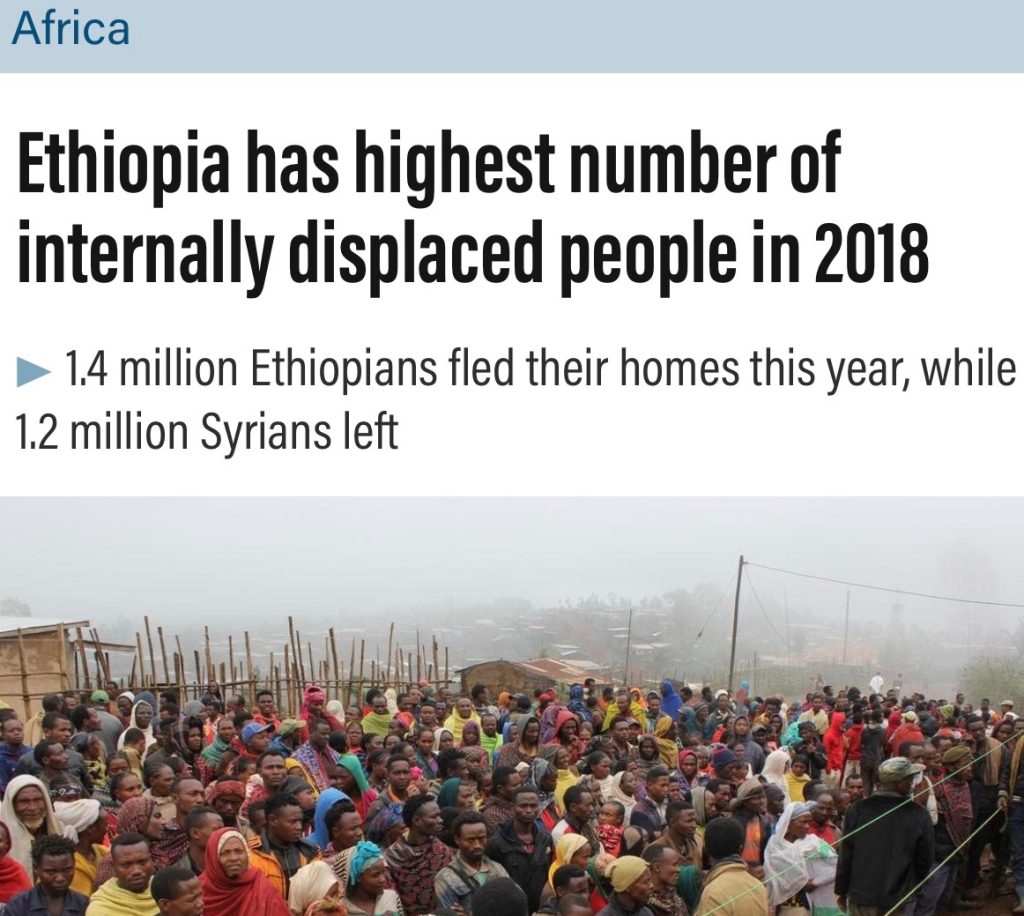
A report on human displacement in Ethiopia in 2018
In 2018, more people were being displaced from their homes in Ethiopia than anywhere else in the world. In eastern Ethiopia, not far from Somalia, youth went door-to-door in a city called Jijiga. They told their othered neighbors to get out or expect to be killed. Sadly, dozens of people were slaughtered, and many more fled for their lives. (It goes without saying, this pattern is not unique to Ethiopia. I think of slavery, lynching, and the “Great Migration” of African Americans in the United States.)
At the time, I was invited to give a talk at city hall in Dire Dawa not far from Jijiga. This was part of a project that I designed with the U.S. Embassy called “Youth, Public Life, and the New Ethiopia.” We were seeking to create safe spaces for representatives of Ethiopia’s 70 million youth to ask big questions and be inspired with a fresh vision of the common good and human flourishing.
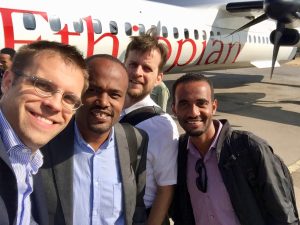
Arriving in Dire Dawa
Dr. King’s Vision of Love
As our four-person team drove from the airport into Dire Dawa on October 17, 2018, I saw massive tents sheltering the people who had fled for their lives. When we arrived at city hall, the conference room was packed with about 200 local youth. In light of the ethnic cleansing so tangibly evident in the region, I gave a passionate talk about why we should actively love our enemies.
In my presentation, I introduced these youth to Martin Luther King Jr.’s moral vision of loving our enemies. Dr. King argued that enemy love is “an absolute necessity for our survival.” His claim resonated powerfully in light of what was happening in Ethiopia.
Dr. King then outlined three crucial steps that we must take to make loving our enemies possible and practical:
“First, we must develop and maintain our capacity to forgive… Second, we must recognize that the evil deed of the enemy-neighbor, the thing that hurts, never quite expresses all that he is… there is some good in the worst of us and some evil in the best of us… Third, we must not seek to defeat or humiliate the enemy but to win his friendship and understanding.” Martin Luther King Jr., Strength to Love
With prophetic passion, Dr. King concluded,
“Love is the only force capable of transforming an enemy into a friend. We never get rid of an enemy by meeting hate with hate; we get rid of an enemy by getting rid of enmity.” Dr. King
I concluded my own talk by casting a vision of the “new Ethiopia” as a place where people love their enemies. I challenged these youth to enlist themselves as ambassadors of enemy love for their society.

Asking Critical Questions
After the presentation, hands immediately shot up around the hall. A young Muslim woman stood up and passionately said, “Our village is full of problems! But no one is acting and youth aren’t taken seriously! How can we take the lead in loving our enemies?”
More questions rapidly followed, most of them from other young Muslim women:
“What if you love your enemies and your community thinks you’re stupid or weak?”
“What if your enemies don’t love you back or even hurt you more when you are vulnerable?”
“What if loving your enemies doesn’t work and violence persists?”
The conversation with these passionate high schoolers continued for an hour until we ran out of time. The students were obviously inspired and challenged by this new moral vision. Several gathered on the stage and wanted to stay behind to ask more questions about how to love their enemies in the midst of conflict.
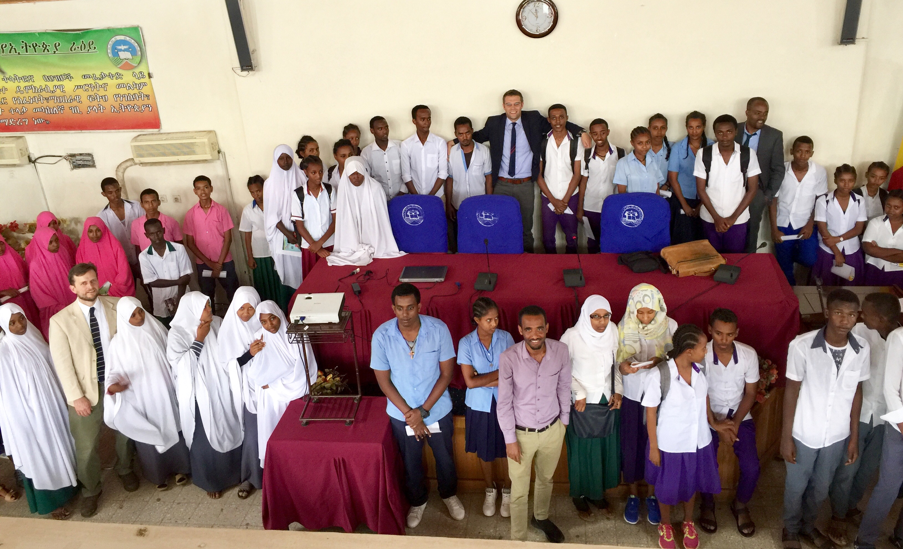
Meeting Ferdosa
As soon as the meeting ended, a 10th-grade student came up to me. Ferdosa was wearing a beautiful white hijab that circled her kind face. Her presence was gentle but fierce. I will never forget the passionate words she spoke to me:
“Dr. Andrew, thank you for sharing your message with us. I have never loved my enemies, and no one has ever told me to love my enemies. Starting today, I will love my enemies and teach others to love their enemies.” Ferdosa Abdale Samatar
Ferdosa’s face was full of joy and conviction as she made her vow. Her words suffused my heart with fresh hope and passion for this new, enemy-loving Ethiopia.
When I asked her if we could take a picture together to mark this moment, she grabbed my hand and raised it with hers. It was like we were making a covenant together to love our enemies.
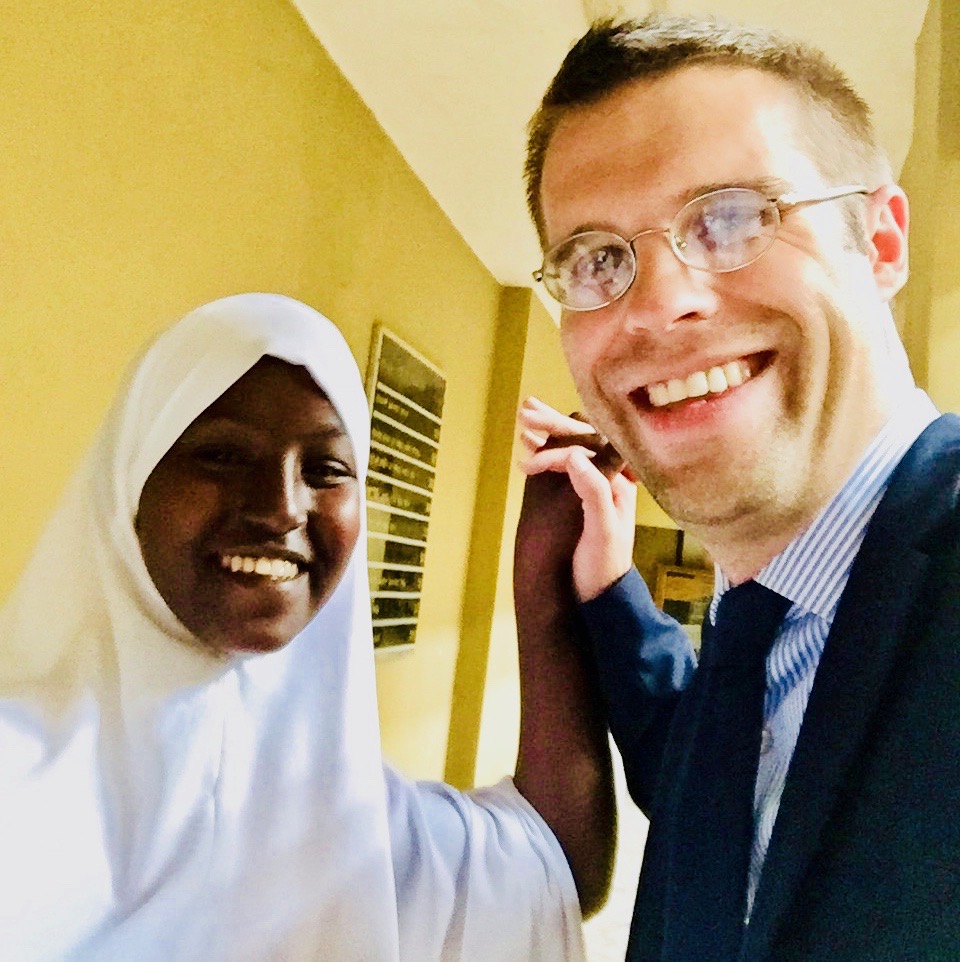
Committing with Ferdosa to love enemies
Years later, I asked Ferdosa what she considered to be her greatest strength as she entered into adulthood. She told me, “I am a person who loves even my enemies.”
Ferdosa was living in one of the most ancient Christian and Muslim countries in the world. In fact, Ethiopia’s national epic traces its story back to King Solomon, Moses, and the Garden of Eden. And yet, Ferdosa had never heard these three words before: love your enemies.
As othering threatened to consume her society, this alternative invitation gave her hope. Rather than eliminating one another and expanding a spiral of othering, a new moral circle was possible: enemies could learn to see one another as neighbors, people who share relationship and equal worth. Together, they could seek a mutual dignity, security, and flourishing for all.
Reviving the Golden Rule
When I met Ferdosa in eastern Ethiopia in late 2018, I was in a transitional moment in my own life. I had resigned from my job teaching Christian ethics at the Ethiopian Graduate School of Theology in Addis. I knew that I couldn’t remain on a safe Christian island as othering escalated in Ethiopia, including in overwhelmingly Christian areas. But I wasn’t sure what was next.
Ferdosa’s words burned in my heart: “I have never loved my enemies, and no one has ever told me to love my enemies. Starting today, I will love my enemies and teach others to love their enemies.” As I remembered that moment, a question was born inside of me: How many other youth like Ferdosa are longing for hope beyond othering but have never been invited into the way of neighbor love?
In the months that followed, my wife Lily and I, along with our partner Tekalign Nega, started the Neighbor-Love Movement. Our mission was simple: to invite the youth of Ethiopia to see their enemies as neighbors and to practice this love amidst the crisis of othering. We wanted to revive the movement Jesus started in this ancient homeland of Christianity and Islam.
We compressed the heart of this movement into a concise Neighbor-Love Covenant. This covenant comes with seven practices that embody this love in how we see, listen, and act with others.
Since 2019, thousands of youth like Ferdosa have signed the Neighbor-Love Covenant. Over over twenty million people have encountered our invitation to love others as neighbors.
Our humble work continues today even as Ethiopia is being devastated by the 21st century’s deadliest civil war. Against odds, we believe with Ferdosa that this ancient movement can still bring healing and hope out of the despair of othering. As Margaret Mead said, “Never doubt that a small group of thoughtful, committed people can change the world; indeed, it’s the only thing that ever has.”
Seven years after meeting Ferdosa, I’m delighted to tell her story in my new book Reviving the Golden Rule: How the Ancient Ethic of Neighbor Love Can Heal the World. This book unpacks how this revolutionary movement of loving “others” began in the ancient world, the transformation it has catalyzed across history, and how we can continue it.
In Ethiopia, America, and across the world, I hope this book will help readers rediscover how they can participate in reviving the golden rule today.
***
I originally published this essay in October 2018. In May 2025, I updated and adapted it from my book Reviving the Golden Rule (@2025 by Andrew David DeCort). Used by permission of InterVarsity Press. You can order the book here.



